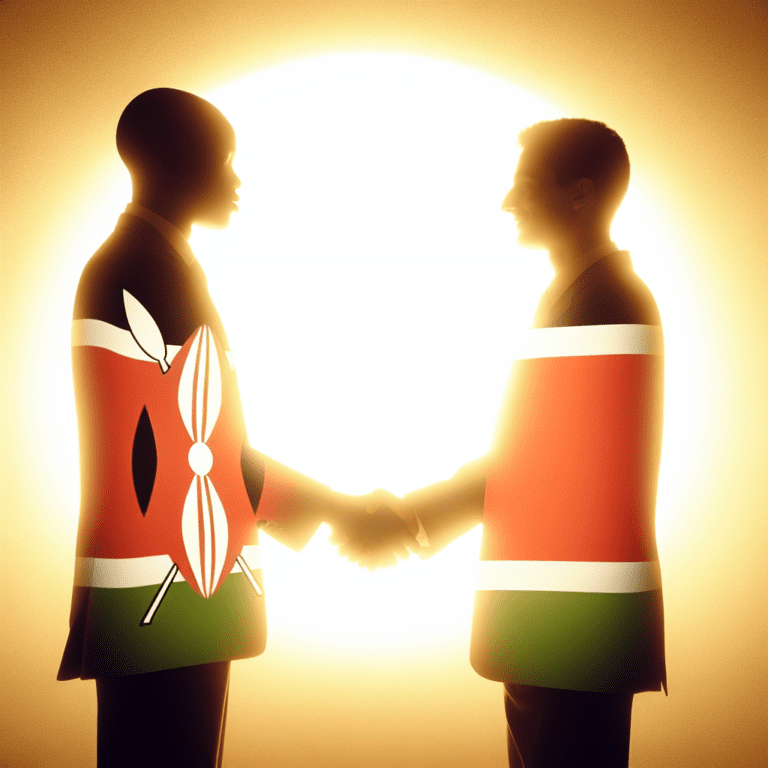What Is The Role Of Women In Kenyan Politics?
The role of women in Kenyan politics has been a topic of great importance and discussion. With a desire to explore and understand their involvement in the political sphere, this article seeks to shed light on the various ways in which women have made significant contributions to shaping the political landscape in Kenya. From advocating for gender equality to actively participating in decision-making processes, women in Kenyan politics have exemplified resilience, determination, and passion in their pursuit for a more inclusive and balanced political representation. Join us as we unveil the inspiring stories of these trailblazing women, highlighting their achievements and the challenges they continue to face in their journey towards political empowerment.

This image is property of pixabay.com.
The historical context of women in Kenyan politics
The colonial era
During the colonial era, women in Kenya faced significant barriers to their participation in politics. The British colonial administration imposed patriarchal systems and norms that marginalized women and restricted their political rights. Women were excluded from decision-making processes and denied the right to vote or hold public office. This perpetuated gender inequality and reinforced the notion that politics was a male-dominated sphere.
Post-independence struggles
Following Kenya’s independence in 1963, women in the country continued to face numerous challenges in their quest for political inclusion. Despite their active involvement in the struggle for independence, women were often sidelined in post-independence politics. Societal perceptions and traditional gender roles limited their opportunities for political leadership and participation.
The 2010 Constitution
In 2010, Kenya adopted a new constitution that aimed to promote gender equality and enhance women’s participation in politics. The constitution enshrined the principle of affirmative action, which called for the inclusion of marginalized groups, including women, in politics. This marked a significant milestone in the journey towards achieving gender parity in Kenyan politics.
Challenges faced by women in Kenyan politics
Societal barriers and discrimination
Societal norms and stereotypes play a significant role in limiting women’s participation in politics in Kenya. Traditional gender roles dictate that women should focus on domestic responsibilities rather than engaging in public affairs. Discrimination, marginalization, and gender-based violence further aggravate the challenges faced by women in politics, as they often face resistance and prejudice in their pursuit of political leadership.
Lack of access to resources and funding
Access to resources and funding is another major hurdle for women in Kenyan politics. Limited financial resources make it difficult for women to fund their campaigns or gain the necessary visibility needed to succeed in political spheres. This economic disadvantage dampens their political prospects and perpetuates the gender imbalance in politics.
Limited representation in political parties
The lack of women in leadership positions within political parties is a significant impediment to women’s participation in Kenyan politics. Political parties play a crucial role in shaping national policies and determining candidates for elective positions. Without adequate representation and influence within these parties, women find it challenging to break through the barriers and secure party nominations for key positions.
Efforts to promote women’s participation in politics
Affirmative action policies
Affirmative action policies have been instrumental in promoting women’s participation in Kenyan politics. The inclusion of a gender quota in the 2010 Constitution mandated that at least one-third of elective positions should be held by women. This proactive approach aims to address historical gender imbalances and provide increased opportunities for women to seek political leadership.
Women-led organizations and advocacy groups
Women-led organizations and advocacy groups have played a crucial role in amplifying the voices of women in Kenyan politics. These groups provide support, guidance, and platforms for women to network, share experiences, and strategize on ways to overcome the challenges they face. They serve as a source of empowerment and create a sense of solidarity among women in politics.
Gender mainstreaming initiatives
Gender mainstreaming initiatives are essential for ensuring women’s perspectives and needs are taken into account across all areas of governance and decision-making. By integrating a gender lens into policies, institutions, and practices, these initiatives seek to challenge existing power dynamics and promote more inclusive and equitable political structures in Kenya.
Impact of women in Kenyan politics
Advocacy for gender equality and women’s rights
Women in Kenyan politics have been at the forefront of advocating for gender equality and women’s rights. Their presence in political spaces helps bring attention to women’s issues and challenges societal norms that perpetuate gender discrimination. Women politicians actively promote policies that address gender-based violence, women’s empowerment, and access to healthcare and education.
Policy formulation and implementation
The inclusion of women in politics has contributed to more comprehensive and inclusive policy formulation and implementation in Kenya. Women bring unique perspectives and experiences to the table, ensuring that policies are responsive to the needs of all citizens. Through their active participation, women politicians have championed legislation on gender equity, education, healthcare, and employment opportunities.
Improved governance and decision-making
The presence of women in political offices has been linked to improved governance and decision-making processes in Kenya. Research has shown that diverse decision-making bodies, including those with women in leadership roles, are more effective and responsive to the needs of the population. Women politicians often prioritize social welfare and community development, leading to better outcomes for citizens.
Success stories of women in Kenyan politics
Wangari Maathai – environmental activism and political participation
Wangari Maathai, a renowned environmental activist, made significant contributions to both environmental conservation and women’s empowerment in Kenya. She founded the Green Belt Movement, which aimed to combat deforestation and empower women through tree planting initiatives. Maathai’s activism eventually led to her election as an MP and later served as an Assistant Minister for Environment, Natural Resources, and Wildlife in the Kenyan government.
Martha Karua – challenging political corruption and inequality
Martha Karua is a prominent Kenyan politician known for her efforts to fight political corruption and champion equality. She served as the Minister of Justice and Constitutional Affairs from 2005 to 2009 and has been an ardent advocate for human rights and good governance. Karua’s fearless stance against corruption and dedication to the rule of law have earned her respect and admiration both locally and internationally.
Ann Waiguru – leadership in public service
Ann Waiguru is a notable figure in Kenyan politics who has demonstrated exemplary leadership in public service. She served as the Cabinet Secretary for Devolution and Planning, where she spearheaded transformative initiatives aimed at enhancing accountability, efficiency, and service delivery at the county level. Waiguru’s commitment to transparent and accountable governance has earned her recognition as one of the influential women in African politics.
Barriers to achieving gender equality in Kenyan politics
Patriarchal societal norms and expectations
Patriarchal societal norms and expectations continue to pose significant barriers to achieving gender equality in Kenyan politics. The notion that politics is a male domain persists, limiting women’s opportunities for political leadership and stagnating progress towards gender parity. Women often face resistance, societal pressure, and gender bias when seeking political office.
Violence against women in politics
Violence against women in politics remains a concerning issue in Kenya. Harassment, intimidation, and physical attacks on women politicians have a chilling effect on women’s participation and undermine their confidence in engaging in political processes. The fear of violence further discourages women from voicing their opinions and seeking political office.
Inadequate representation in elected positions
Despite efforts to promote gender equality in politics, women in Kenya continue to be underrepresented in elected positions. While strides have been made in increasing the number of women in political offices, there is still a long way to go to achieve equal representation. Inadequate representation inhibits women’s ability to influence policy decisions and limits their impact on socio-political transformation.
Strategies to empower women in Kenyan politics
Increasing women’s participation in decision-making bodies
Increasing women’s participation in decision-making bodies, such as parliaments, cabinets, and local government councils, is crucial to empowering women in Kenyan politics. This can be achieved through continued implementation of affirmative action policies, gender quotas, and the promotion of inclusive governance structures that value diverse perspectives.
Strengthening women’s political networks and mentorship programs
Building strong political networks and mentorship programs for women can provide crucial support and guidance in navigating the challenges of Kenyan politics. Mentors can offer advice, share experiences, and help women build the necessary skills and confidence to succeed in political leadership roles. Strengthening these networks can foster a supportive environment where women can thrive.
Enhancing gender-responsive governance structures
Promoting gender-responsive governance structures is vital to ensuring that women’s needs and perspectives are adequately represented and considered in policymaking processes. This entails conducting gender analyses of existing policies, ensuring gender balance in decision-making bodies, and fostering a culture of inclusivity and diversity in political institutions.
International perspectives on women in Kenyan politics
Comparative analysis with other African countries
When compared to other African countries, Kenya has made significant strides in promoting women’s participation in politics. Countries like Rwanda and South Africa have implemented progressive measures, such as gender quotas, that have resulted in higher levels of women’s representation. These comparative analyses provide valuable insights into successful strategies and highlight areas where further progress can be made.
Influence of international organizations and agreements
International organizations and agreements have played a crucial role in advocating for women’s political participation in Kenya. Organizations like UN Women and the African Union have supported initiatives aimed at enhancing women’s representation, promoting gender equality, and addressing barriers faced by women in politics. International agreements and conventions, such as the Convention on the Elimination of All Forms of Discrimination Against Women (CEDAW), provide a framework for promoting women’s rights and equality.
Global recognition of women’s political achievements in Kenya
Kenyan women in politics have gained global recognition for their achievements and contributions to the advancement of gender equality. Their dedication to advocating for women’s rights and their impact on policy formulation and implementation have garnered international acclaim. These success stories inspire women in other countries and contribute to the global discourse on gender equality in politics.
The future of women in Kenyan politics
Importance of continued advocacy and support
Continued advocacy and support for women’s participation in Kenyan politics are vital to sustaining the progress made thus far. It is crucial to maintain momentum and ensure that gender equality remains a priority. Ongoing efforts, such as awareness campaigns, mentorship programs, and targeted support for women candidates, will help create a more inclusive and equitable political landscape.
Potential for increasing women’s representation
Despite the challenges, there is immense potential for increasing women’s representation in Kenyan politics. With the implementation of gender quotas and affirmative action policies, coupled with the growing recognition of the value women bring to decision-making processes, the number of women in political leadership roles is expected to continue to rise. This presents an opportunity for transformative change and greater gender equality in Kenya’s political arena.
Role of younger generations in shaping the future
Younger generations have a vital role to play in shaping the future of women in Kenyan politics. By challenging societal norms, advocating for equality, and actively engaging in political processes, young people can drive change and push for increased representation of women in leadership positions. Empowering and supporting young women in their political aspirations will create a more inclusive and dynamic political landscape for future generations.
Conclusion
The role of women in Kenyan politics has evolved significantly over time, from facing historical barriers and discrimination to making significant contributions to policy formulation, governance, and equality advocacy. While there are still challenges to overcome, efforts to promote women’s participation in politics have demonstrated tangible progress. With continued support, advocacy, and empowerment, women in Kenyan politics have the potential to shape a more inclusive and equitable future for all.






